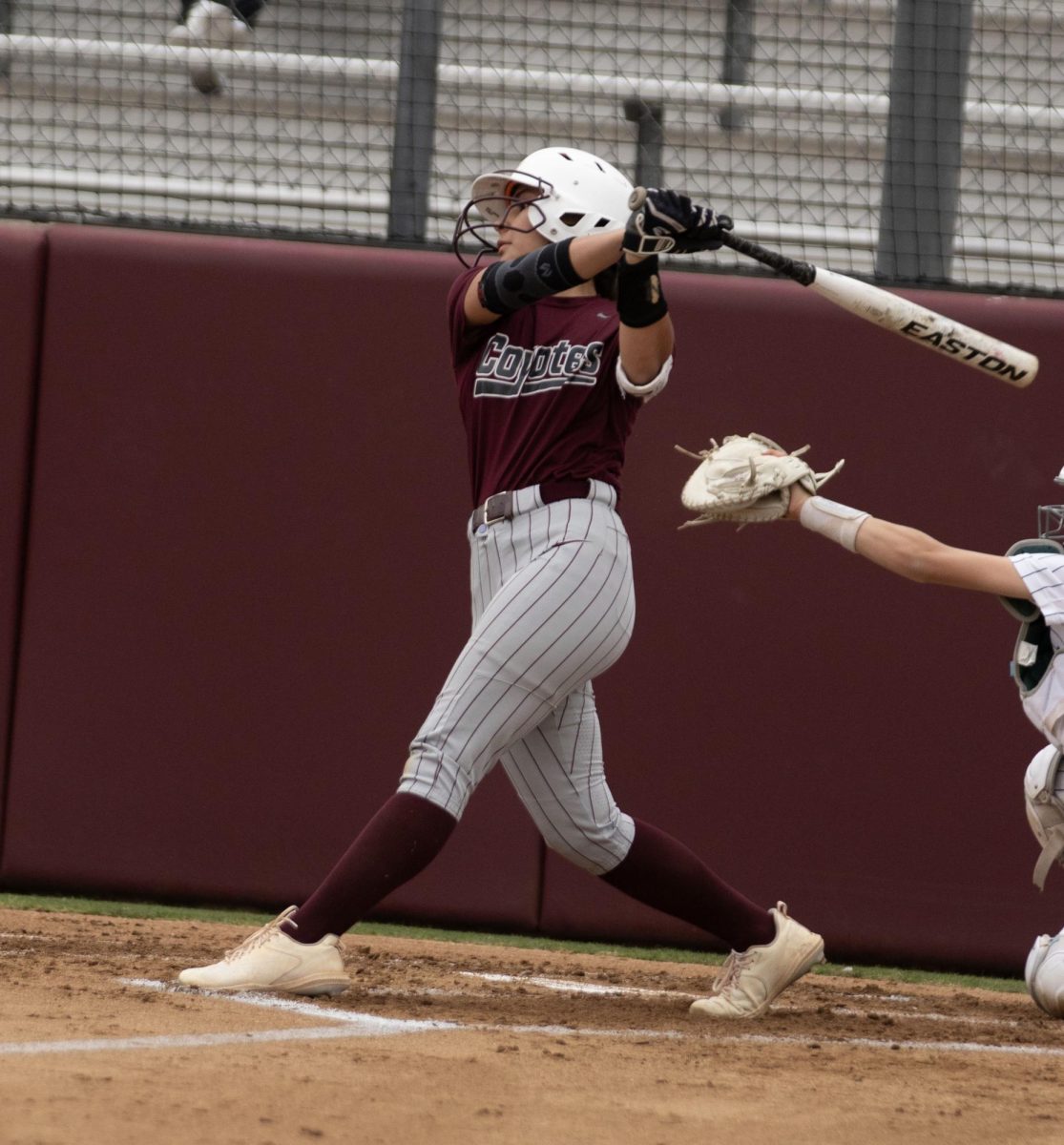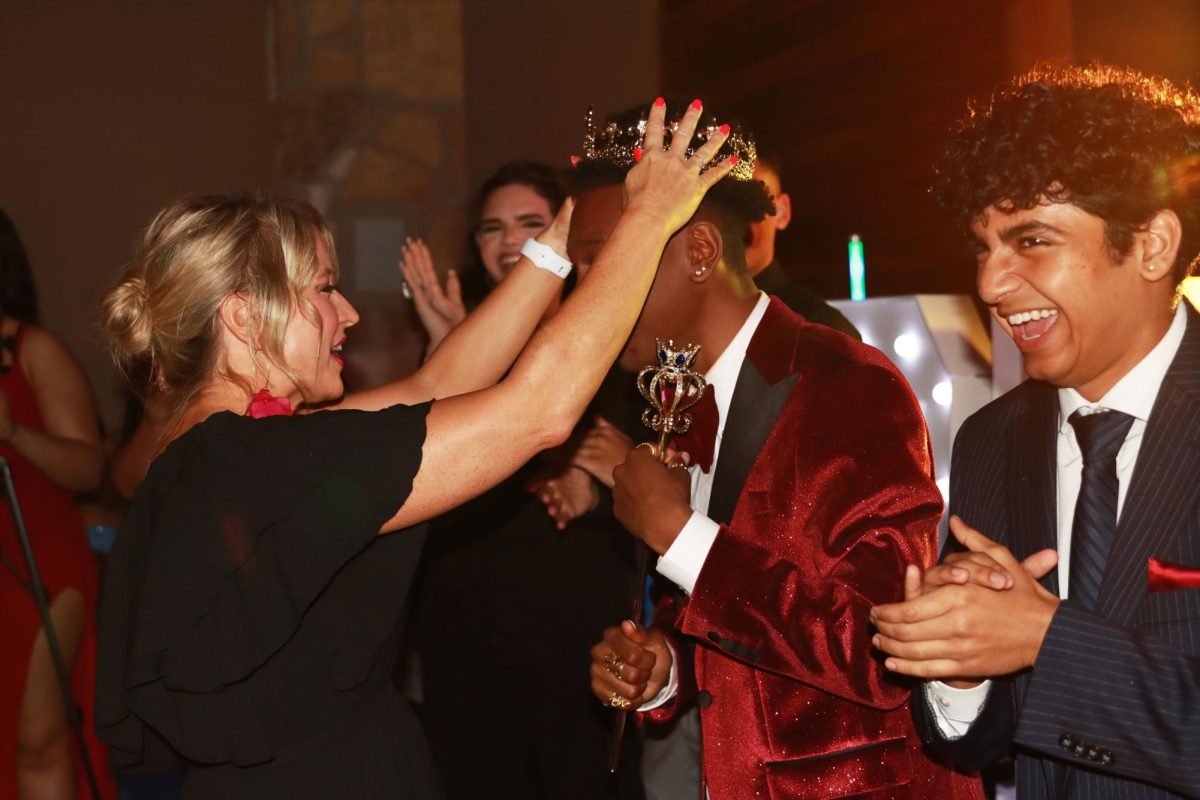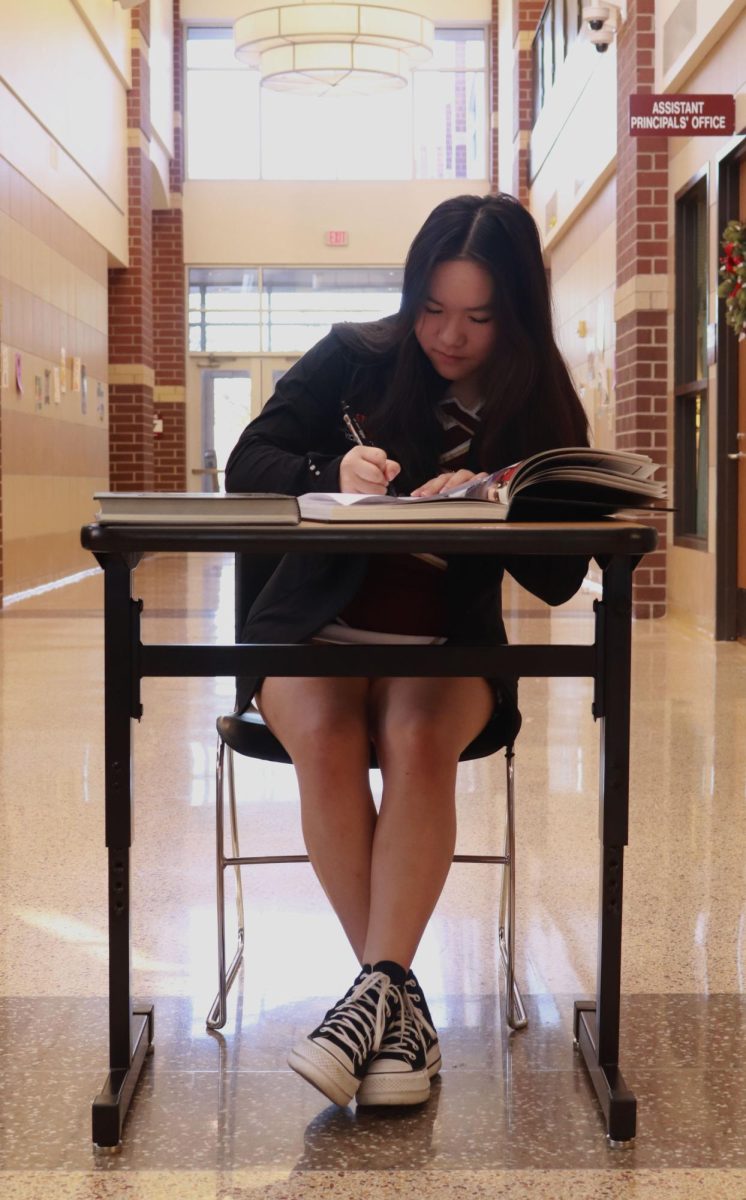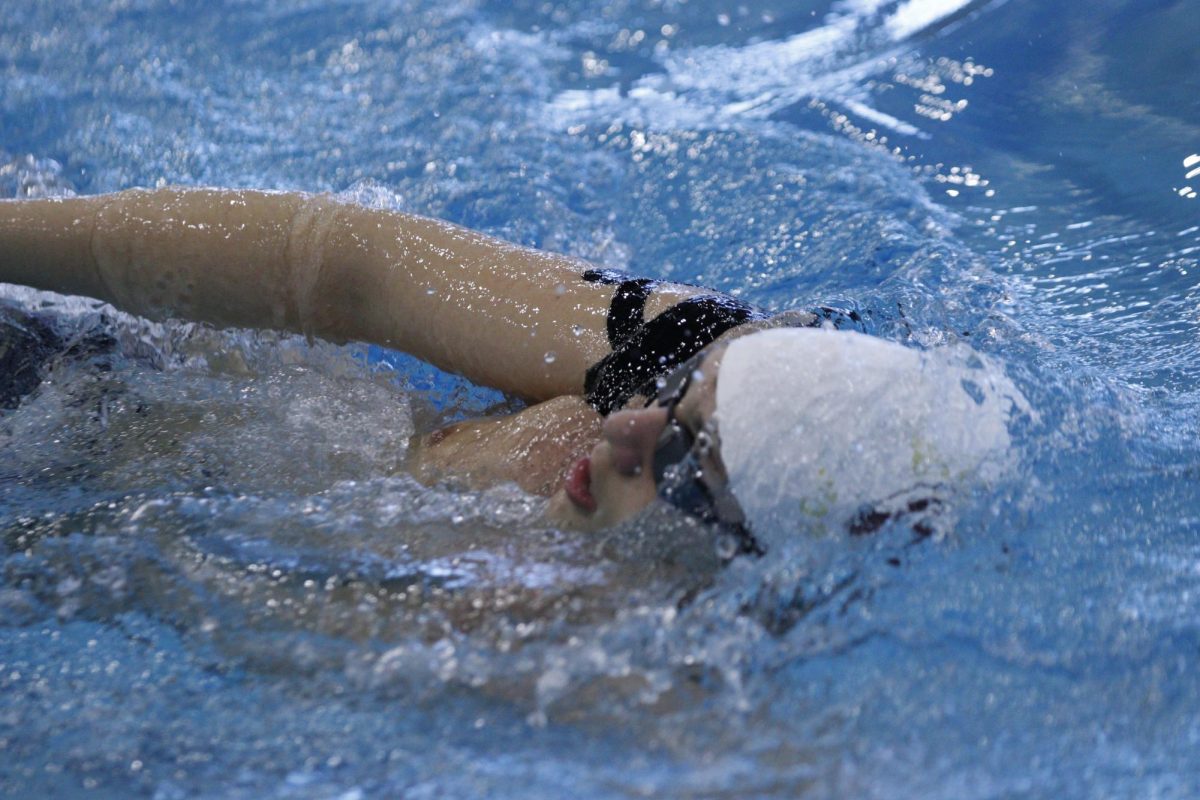Embracing actuality was not senior athlete Vyanna Quezada’s strength last school year. Even while consistently limping in pain, she was determined to not let down her basketball team, not knowing that doing so would have her end up in surgery and be the reason she missed the majority of her softball season.
In the midst of her junior year, Quezada was diagnosed with tendinosis and couldn’t participate in sports for 6-8 weeks. However, she claimed that having a good support system helped in guiding her recovery, and having one’s own can aid in navigating anyone through the pain of numerous different obstacles and struggles.
“When you’re an athlete, you have these moments when you think that just putting some ice on it will be fine, so I wasn’t taking it seriously,” Quezada said. “At the time, I was really trying to be there for my basketball team, so I was really just trying to have fun. I love playing sports, and I really felt like it just got taken away from me. But all my friends were there for me because they knew that it would definitely take a toll on me. I don’t think I would have been able to overcome my injury if they were not a part of that equation.”
During her time spent in crutches, Quezada illuminated the fact that she was lucky to have had a good support system that frequently reminded her that she had so much to live for in spite of her injury.
“My friends were always there for me and my family took really good care of me,” Quezada said. “But even outside of that, I had great personal trainers. They made sure I stayed positive and never gave up because even though I knew them for a short time, they knew that this was important to me. They always asked me about my future as a way to remind me that I still had one even during this hard time.”
With a highly anticipated softball season on the rise, a “devastated” sportswoman realized that she would be unable to be actively engaged in the experience. Nonetheless, she was happily capable of getting to play at state, even though it was daunting.
Quezada acknowledged the fact that her injury significantly jeopardized her college recruitment undertaking. But despite that, her post-recovery displayed work ethic, which brought about a scholarship to play softball at the University of Arkansas at Monticello.
In differentiation, girl’s basketball coach Blake Reedy admitted that he “needed” Quezada on the team for her athletic prowess and personal qualities rather than the other way around, in spite of the fact that she had already decided to go play college softball.
“I tried to be there for Vyanna because I felt like she was doing me a favor,” Reedy said. “I’m big on being the first person on the floor, and she was on the first day of practice, even though her knee had started hurting at the beginning of the year. She just changed the energy of practice and was also my mouthpiece in a way. She wasn’t afraid to speak up, and I needed that because it was my first year as the head coach, and I didn’t have an assistant. It’s immeasurable what she meant to me then and now. I was in awe of her because of how hard she worked and how much she was willing to sacrifice.”
Reedy also explained that he coaches for the connections rather than the victories, and values the person that Quezada is over how well she plays on the court. When Quezada’s tendinosis was getting worse, the first thing that came to Reedy’s mind was that her future with softball was worth more than a few high school basketball wins.
“She was somebody that never complained, so I had to tell her that she wasn’t going to play, and that was really hard for me,” Reedy said. “But she ran my clock during practice, so she essentially turned into an assistant coach when Coach Firm couldn’t be there. She was the biggest cheerleader in both basketball and softball and they had a magical year. She was determined to get back on the sidelines and into the dugout as fast as she could. You don’t get a lot of kids with that kind of maturity and that kind of awareness in high school sports.”
It’s no secret that Quezada is her own worst critic, but Reedy claimed that she is the first to uplift others.
“I think she’s grown because she’s seen it from a coaching perspective about how important it is for her to be vocal and to be positive because she’s already so hard on herself,” Reedy said. “So I think that she was able to flip that around and realize that she didn’t have to be as hard on herself all the time. But other people saw how selfless she was and how willing she was to be the best teammate.”
Reedy then finally made clear that he believes that our school would greatly benefit from having more athletes that display Quezada’s attributes.
“She valued being a part of the basketball team so much and was somebody that I relied on,” Reedy said. “She’s academically stellar and is well respected, then she does all that and misses the season, but then she comes back in the playoff game. She plays a huge role for me just because of her spirit, competitiveness, and her outlook on things. We are better off as a school and will always be better off as long as we have kids like Vyanna.”
Quezada wrapped up with some final thoughts on how you don’t have to be an injured athlete to rise above the darkness and stand victorious. However, finding lights in the shadows can help lead one through the gloom of hopelessness.
“Don’t give up on what you love or what you want to do, it doesn’t even have to be about injuries,” Quezada said. “Surround yourself with people that will bring you up rather than bring you down because surrounding yourself with people just to fill the void is never good. Don’t give up on yourself and don’t give up on the things you love because of an obstacle, just keep working through it.”







